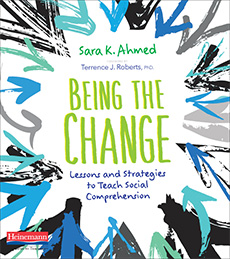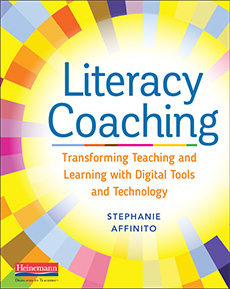"All children deserve to know that they can write a different version of their stories (p. 154)." -- Ruth Ayres
Now that summer is here, I finally have a bit of time to catch up on my reading. I've started many professional books that now need to be finished. This week I was able to finish reading, Enticing Hard-to-Reach Writers by Ruth Ayres. I'm adding this book to my "books that inspire me to be a better teacher of writers" shelf, for sure. It will rest beside The Art of Teaching Writing, Writing Through Childhood, What You Know by Heart, About the Authors, and What a Writer Needs.
I could go on for days about Ruth's writing craft and the ease her words flow off of the page. There's often this sense that she is sitting across the table from me and we're discussing the challenges we face as teachers, writers, and moms. However, if I spent all my time there I'd miss the many important points she makes about nurturing our young writers in our workshops.
Here are my big takeaways:
Writing requires safe spaces and caring communities. Ruth begins by reshaping our thinking about writers who may have difficulty putting pencil to paper. She not only reminds us of brain research and what children need in learning but also that sometimes the behaviors we note "[stem] from fear rather than defiance." This lens might truly change the way we respond to writers as they work to overcome obstacles. "Fight, flight, and freeze are common responses to fear. It's important to realize that when we think children are being willful, they may actually be afraid (p.20)," Ruth reminds. One of the first steps to enticing hard-to-reach writers is to build a relationship with them and learn their story. Writing is hard generally, but what if the stories you carry inside you are hard also? As teachers, we have the ability to provide the space for working through hard stories.
To support writers, we not only have to provide safe spaces but, also, know the challenges of writing. "We must write and discover the process for ourselves (p. 48)," according to Ruth. As a teacher who writes, I know the challenges of putting words on paper. It helps me to understand the hard days of writing, that not every story written will be better than the last one, and to know the difficulties in writing in a way that an audience will hear your intended message. Our experiences writing help us to guide students through these challenges. Our experiences writing through all the hard parts and celebrations can help us to shape communities of "faithful and fearless writers (p. 70)."
As teachers who write, we know writing can be hard, but we also know the joy of working through tough challenges. It is easy to get caught up in the things our writers aren't doing, but perhaps the power is in beginning to see what writers are doing. In her book Ruth talks about the power of being strengths-based: "Instead of focusing on the things students don't do well, consider the things they are almost doing as writers (p. 82)." It's the celebrations that fuel our next hard steps.
Writing isn't a lock-step process; instead, it is messy work. In Ruth's final chapters, she shares the moves we can make as teachers to support hard-to-reach writers (any writer) in our workshops. In these moves, she shares her thinking behind each and some practical ways to give it a try. Here are a few of my favorites:
- Show kids a path through a writing project (p. 90).
- Build curiosity (p.91).
- Write a draft in a way that works for you (p. 96).
- Convince students there is an audience that cares about reading their writing (p. 114).
- Support students in finding and claiming a writing mentor (p. 125).
- Name the strengths students have as writers (p. 131).
- Diversify the end of workshop share sessions to provide more opportunities for students to share and hear about their feedback (p. 140).
This was just the book I needed to read this summer. More and more it seems our writing blocks get filled with lock-step processes and product focused work. This book reminds me of the importance of helping students, not only find themselves as writers but, dig deep to find the stories that matter in their lives, the stories we can all learn from. This book reminds me to celebrate the experiences of my writers and those little steps we make along the way.
Thank you, Ruth, for sharing your thinking with us.






